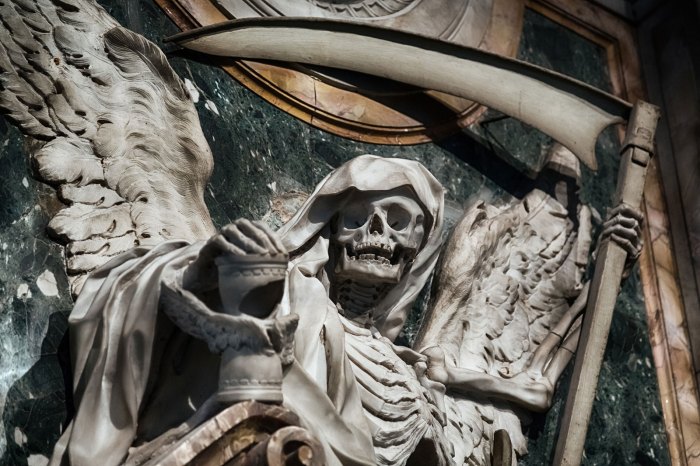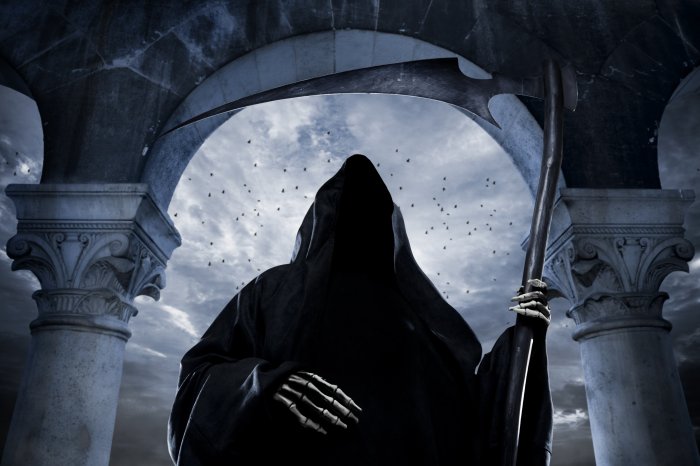Which event is most likely to occur in a tragedy – In the realm of literature, tragedy reigns supreme as a genre that explores the depths of human suffering and misfortune. One of the most intriguing aspects of tragedy is the question of which events are most likely to occur within its confines.
From the flaws that plague characters to the interplay of fate and free will, this essay delves into the various events that commonly shape tragic narratives, providing insights into the very nature of human existence.
The content of the second paragraph that provides descriptive and clear information about the topic
Events Commonly Associated with Tragedy: Which Event Is Most Likely To Occur In A Tragedy

Tragedies are often characterized by a series of events that lead to a disastrous or fatal outcome. These events can vary depending on the specific tragedy, but there are certain types that frequently occur.
One common event is the sudden loss of a loved one. This can be a devastating blow that can lead to grief, despair, and a sense of meaninglessness. In Shakespeare’s play Hamlet, the protagonist experiences a profound tragedy when his father is murdered by his uncle.
Hamlet’s subsequent grief and anger drive him to seek revenge, ultimately leading to his own downfall.
Another common event in tragedies is a betrayal of trust. This can occur when a close friend or family member betrays the protagonist’s confidence or loyalty. In Sophocles’ play Oedipus Rex, Oedipus is betrayed by his wife Jocasta, who reveals that he has unknowingly killed his own father and married his own mother.
This betrayal leads to Oedipus’s downfall and the destruction of his family.
Natural disasters and other unforeseen events can also play a role in tragedies. These events can cause widespread destruction and loss of life, leading to a sense of helplessness and despair. In the novel The Plagueby Albert Camus, a bubonic plague strikes the city of Oran, leading to widespread death and chaos.
The plague forces the inhabitants to confront their own mortality and the fragility of human life.
Character Flaws and Their Role in Tragedy
Character flaws can play a significant role in tragedies. These flaws can lead to poor decision-making, impulsive actions, and ultimately, tragic consequences. In Shakespeare’s play Macbeth, the protagonist is driven by his ambition and lust for power. His ambition leads him to murder King Duncan, an act that sets off a chain of events that ultimately leads to his downfall.
In Sophocles’ play Antigone, the protagonist is driven by her sense of duty and loyalty to her family. Her defiance of the king’s orders leads to her death, but her actions also serve to highlight the importance of following one’s conscience, even in the face of adversity.
Character flaws can also be the result of external factors, such as societal pressures or traumatic experiences. In Arthur Miller’s play Death of a Salesman, the protagonist Willy Loman is a victim of the American Dream. His belief in the importance of material success leads him to make poor decisions that ultimately result in his death.
The Impact of Fate and Free Will on Tragedy
The role of fate and free will in tragedies is a complex and often debated topic. Some argue that tragedies are the result of predetermined events, while others believe that characters have the freedom to make choices that shape their own destinies.
In Shakespeare’s play Romeo and Juliet, the protagonists are victims of fate. Their love for each other is forbidden, and their attempts to be together ultimately lead to their deaths. However, it can also be argued that Romeo and Juliet make choices that contribute to their own downfall, such as their impulsive decision to marry in secret.
In Sophocles’ play Oedipus Rex, the protagonist is destined to kill his father and marry his mother. However, Oedipus’s own actions, such as his refusal to believe the oracle’s prophecy, also contribute to his downfall. This suggests that while fate may play a role in tragedies, characters also have the freedom to make choices that shape their own destinies.
Social and Cultural Influences on Tragedy
Social and cultural factors can also play a significant role in tragedies. These factors can shape the characters’ values, beliefs, and behaviors, and they can also create the conditions that lead to tragic events.
In Shakespeare’s play Hamlet, the protagonist is a victim of the social and political climate of his time. The court is a corrupt and dangerous place, and Hamlet’s attempts to seek justice for his father’s murder are ultimately thwarted by the machinations of those in power.
In Arthur Miller’s play The Crucible, the protagonist is a victim of the Salem witch trials. The mass hysteria and fear that grips the community leads to the deaths of innocent people, including the protagonist’s wife.
The Cathartic Effect of Tragedy
Tragedies can have a cathartic effect on audiences. By witnessing the suffering and downfall of the protagonist, audiences can experience a sense of pity and fear, which can lead to a purging of negative emotions. This catharsis can be therapeutic and transformative, helping audiences to confront their own mortality and to find meaning in life.
In Aristotle’s Poetics, he argues that tragedy can have a cathartic effect on audiences by purging them of their emotions of pity and fear. This catharsis can lead to a sense of relief and purification, and it can also help audiences to develop a better understanding of the human condition.
Modern Interpretations of Tragedy, Which event is most likely to occur in a tragedy
The concept of tragedy has evolved over time, and modern interpretations of tragedy often reflect the social and cultural concerns of the present day.
In contemporary literature, film, and theater, tragedies often explore themes such as the fragility of human life, the destructive power of violence, and the search for meaning in a meaningless world.
Modern interpretations of tragedy can also be more experimental and unconventional than traditional tragedies. These interpretations may challenge traditional notions of tragedy, and they may offer new insights into the human condition.
FAQ Overview
What are some common events that occur in tragedies?
Tragedies often feature events such as death, violence, betrayal, and loss.
How do character flaws contribute to tragic events?
Character flaws, such as pride, ambition, and jealousy, can lead characters to make poor decisions that result in tragic consequences.
What is the role of fate and free will in tragedy?
Fate and free will often play a complex interplay in tragedies, with characters’ choices and circumstances interacting to shape the course of events.



